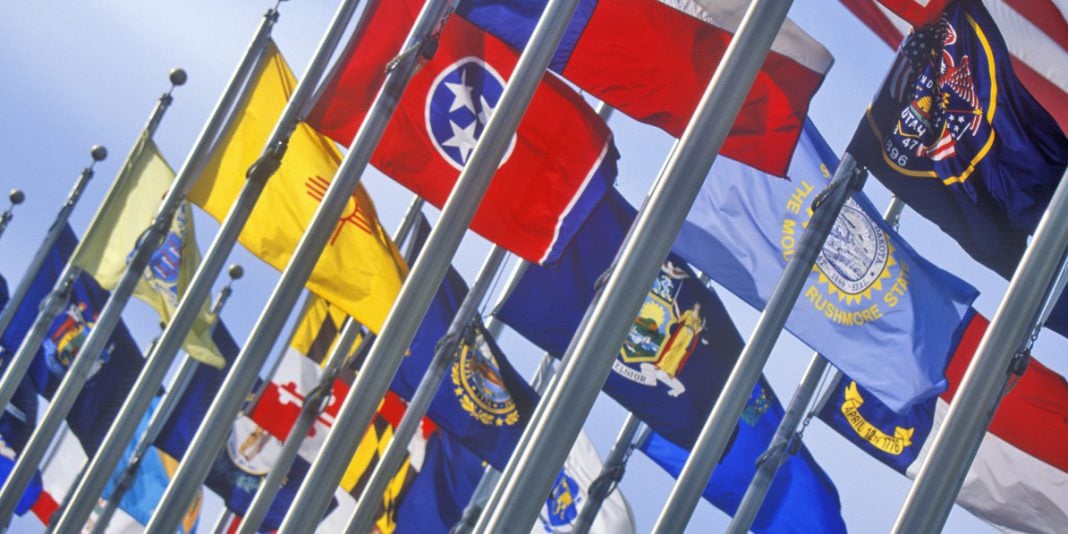Jay Rood, Chief Risk Officer, Bet.Works, addresses the emergence of legalized sports betting in the wake of the strike down of PASPA and talks about how it will take shape in what is evidently a highly divergent market place.
We Americans might all – or most of us – stand for the Star Spangled Banner, but while we’re meant to be “one nation” we are used to living with state-to-state divergence from sea to shining sea.
The 50 American states are separate sovereigns with their own state constitutions, state governments, and state courts. Local taxes in Nevada are different to those of Nebraska, New York and New Jersey, while matters such as justice and gun laws are, of course, very different across the US.
They tell me it’s illegal to drive blindfolded in Alabama and in Alaska you can’t put an animal in the back of an open vehicle. I’ll take their word for it.
Repeal of PASPA
Of course, we’ve seen the spectrum of divergence in gambling for many years. Until 2018 it was pretty much just Nevada that offered sports betting legally across the US, but the repeal of PASPA meant an end to nationwide censure of wagering on the events we love.
New Jersey and Delaware were ready to get going within weeks of the Supreme Court decision, while a flurry of states have moved towards regulation in the last 18 months. 19 states now have legalized betting available within their borders, while a number of others will see the first money placed within the coming year.
Just as it’s illegal to place a coin in one’s ear in Hawaii – I promise I’m not making this up – but it’s not such a restricted practice elsewhere, so there’s been divergence in gambling regulations even among those states that have voted to allow it.
Tax rates and licence conditions are two big areas of diversity, of course. In terms of location and technology, mobile gambling is allowed across states such as New Jersey and Indiana, but it is limited to water and land-based casinos in Mississippi.
Types of bets
The scope extends to the type of bets too, and this is particularly pertinent to me as a Chief Risk Officer. There are some states where it is illegal to bet on college sports, for example, and others where in-play betting is not allowed on these games. Prop bets on college teams based in Iowa are restricted, while Indiana will not allow betting on esports.
I have concerns about variations in types of bets and restrictions from state to state. While I respect states’ rights to make their own decisions and represent local concerns, I fear that when bettors are prevented from making the bets they want to make via the regulated market they will look elsewhere.
Clearly the US has an established black market due to the long years of prohibition and it is essential that open, well regulated frameworks are created that maximize channelization towards legal operators.
The more you have in the open the better you can properly monitor the activity and will better sever the leagues’ and states’ concerns of inappropriate or suspicious activity. The operators are essentially the watchdog for the industry and can bring forward concerns of unusual activity.
Isn’t it better that the millions of dollars wagered on March Madness games go through licensed, regulated businesses and are not syphoned to bookies who operate outside of the law? Any restriction on wager types that are able to be decided on a field of play will reduce the legal, regulated operators’ ability to be competitive verses the unregulated operators, which impacts revenue and taxes.
States that elect to restrict wager types are ultimately restricting the cash that they take; ultimately the lawmakers’ main reason for introducing sports betting in the last 18 months.
Dealing with divergence
Divergence is problematic for operators and suppliers as we need to develop processes and procedures to ensure compliance in each jurisdiction, which requires some duplication of efforts. In particular it creates issues for customer service teams whose menu of ‘legal’ wagers is different from state to state. Again, this puts the legal operators at a competitive disadvantage to the unregulated operators.
Have specific restrictions impacted Bet.Works’ decisions as to which states it will look to operate in? Not at all. We will adapt and move forward into jurisdictions that make sense from a business perspective, which will be related to licensing and taxation.
Would I welcome greater harmonization of betting rules across the US? I am an advocate of a transparency in the US market that allows for a more harmonious approach that would allow the legal, regulated operators to be competitive against the unregulated operators. I believe that the operators that have skin in the game are the ones best to monitor and report irregularities.
The sports betting industry is aligned with ALL the leagues in that our desire is that the games are played with the highest of integrity. If there is any compromise of that the unregulated operators will not bring it forward and the activity will be allowed to continue unchecked.
Bet.Works is a Nevada-headquartered business-to-business (B2B) sportsbook technology supplier that provides fully managed turnkey solutions to its sportsbook clients. Bet.Works recently entered the New Jersey market when it powered the launch of theScore’s online sportsbook product after signing a multi-year deal with the Toronto-based media company at the end of 2018.
In Iowa Bet.Works powers EliteSportsbook.com under the Elite Casino brand.














